China Mulls New Property Support Package to Boost Economy
This article from Bloomberg may be of interest to subscribers. Here is a section:
A mountain of developer debt — equal to about 12% of China’s GDP — is at risk of default and poses a threat to financial stability, according to Bloomberg Economics. That’s despite a slew of existing support measures for the industry, which include:
Lower mortgage rates for first-home buyers if newly constructed house prices drop for three consecutive months
A nationwide cap on real estate commissions to boost demand
Allowing private equity funds to raise money for residential property developments
Pledging 200 billion yuan ($28 billion) in special loans to ensure stalled housing projects are delivered
A 16-point plan unveiled in November that ranged from addressing the liquidity crisis to loosening down-payment requirements for homebuyersSpeculation about further policy support helped propel a gauge of Chinese property developers to a more than 6% gain on Friday before the Bloomberg report, the most since December. In the coastal city of Qingdao, the government this week lowered the down payment ratio for first- and second-time home buyers in areas not subject to purchase restrictions, local media reported earlier on Friday.
Everyone can agree that moral hazard is a problem for economists. Create an incentive and resisting regulation ensure it will be exploited to the greatest extent possible by any and all means possible. Unbridled debt issuance is a hallmark of speculative activity in China. That’s been a clear feature of the housing/infrastructure boom. It was equally evident in the pace with which loans were made to foreign governments and projects as part of the Belt and Road Initiative.
The problem with fuelling a property boom for 40 years is the entire population is in on the game. No one believes the government can walk away from the sector, when it such a massive part of the economy. Debt at risk of default being equivalent to 12% of GDP is $2 trillion and that is only the portion currently at risk of default.
The one thing the government can do to support sentiment is to backstop the debt of the property developers. That is also the one thing they do not want to do because it would risk reflating the housing bubble. Price to income ratios are still in the 20s or higher so a reflation would be particularly problematic for social cohesion. Nevertheless, the only way regional governments can fund themselves is with land sales. To say the Chinese property sector is a catch-22 is an understatement.
The big question is how much pain is an administration willing to take? For China the chokepoint is the property market. They cannot endure a crash and the best they can hope for is a managed decline. That means repeated bouts of “just enough” liquidity to sustain the market.
For the USA, asset prices are helping to sustain consumption and the stock market has historically been the chokepoint. For now, that’s not a worry for the Fed.
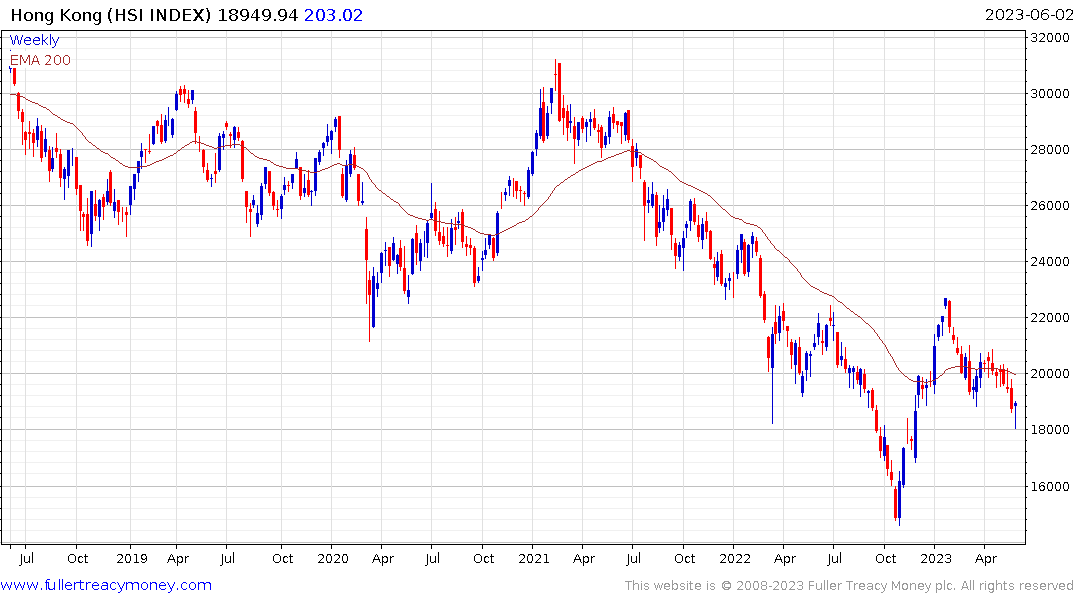 The Hang Seng was up over 4% today to confirm a low of at least near-term significance.
The Hang Seng was up over 4% today to confirm a low of at least near-term significance.
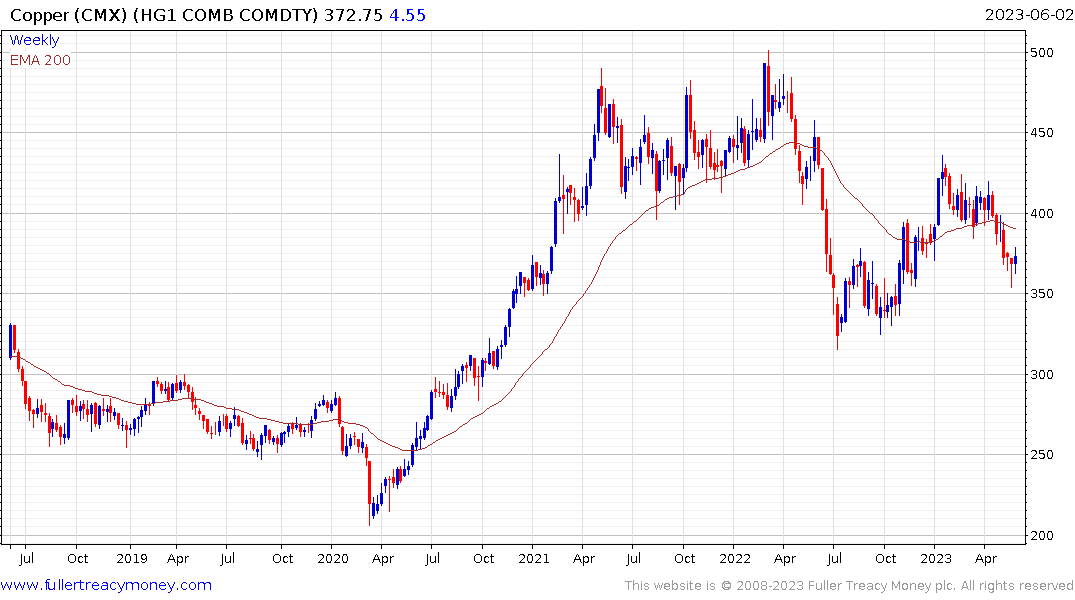
Copper failed to hold the early strength today and closed almost unchanged. The promise of additional measures to support Chinese consumption of the metal will need clear evidence of implementation to help confirm a floor in prices.
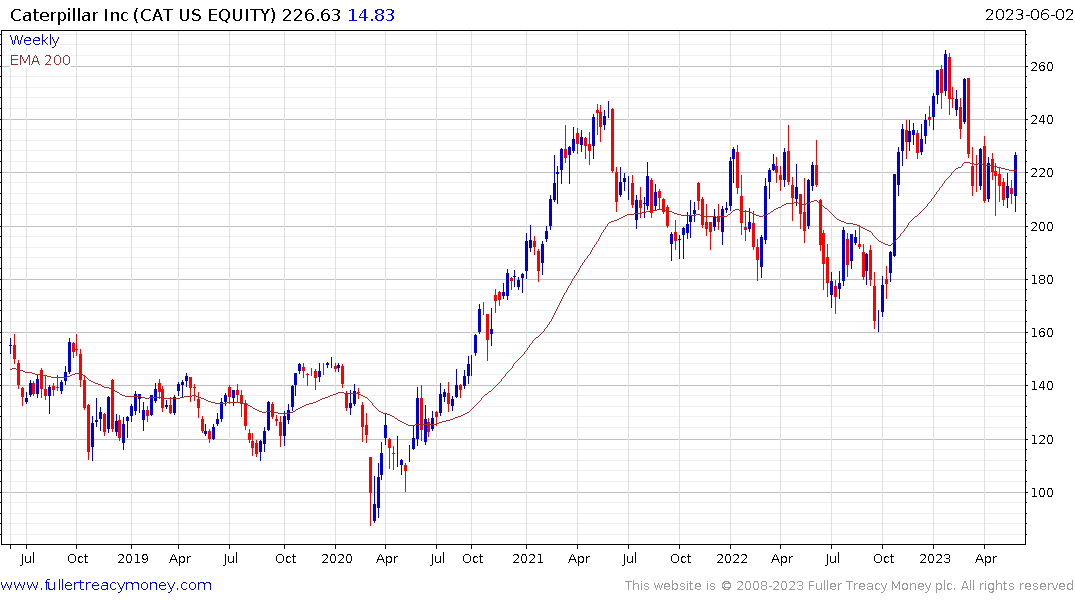
Caterpillar bounced emphatically today to break the five-month downtrend and confirms support in the region of the 1000-day MA.
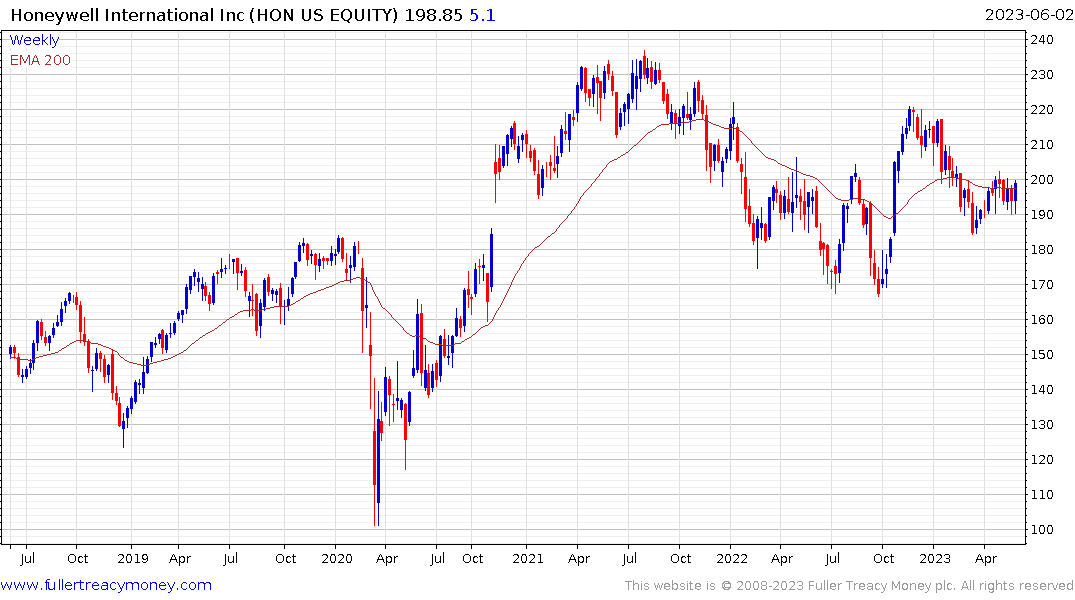
Honeywell also popped on the upside today.
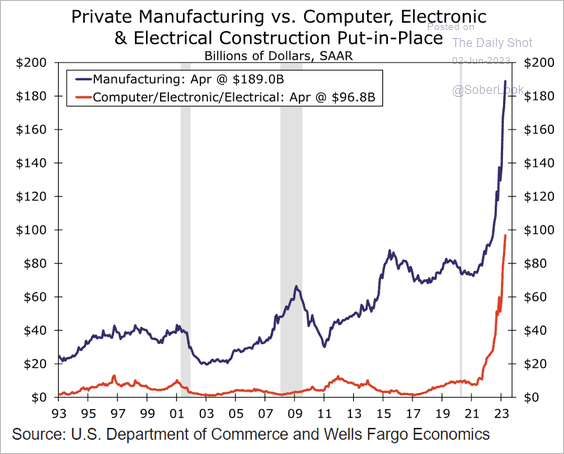
The significant uptick in manufacturing construction spending in the USA is clear evidence that the financial incentives put in place by the Inflation Reduction Act are being utilised. That’s an additional rationale for the recovery in industrials.


